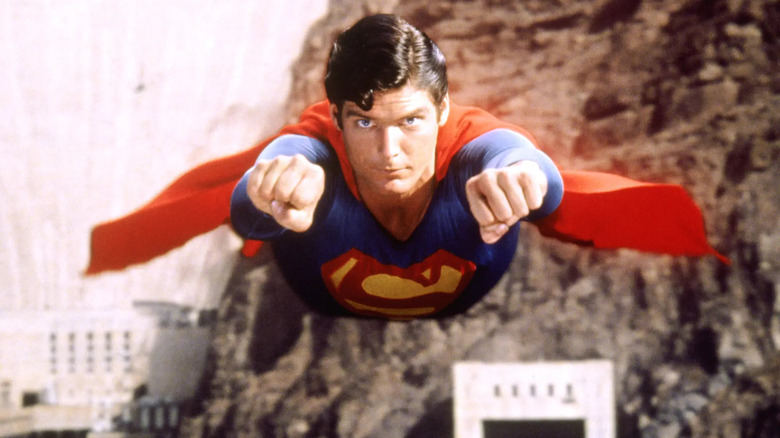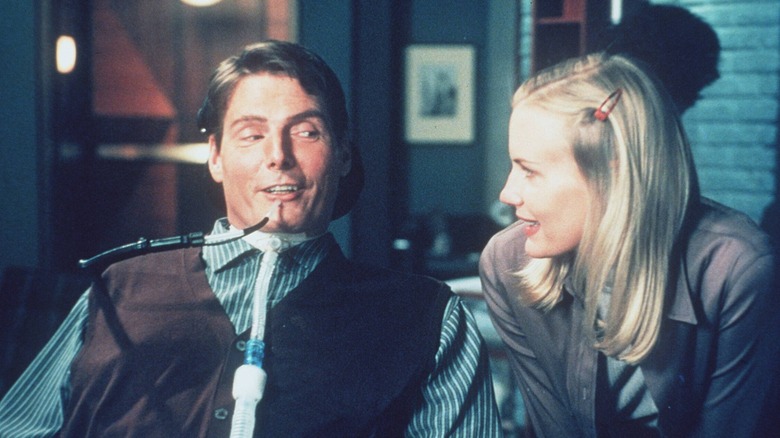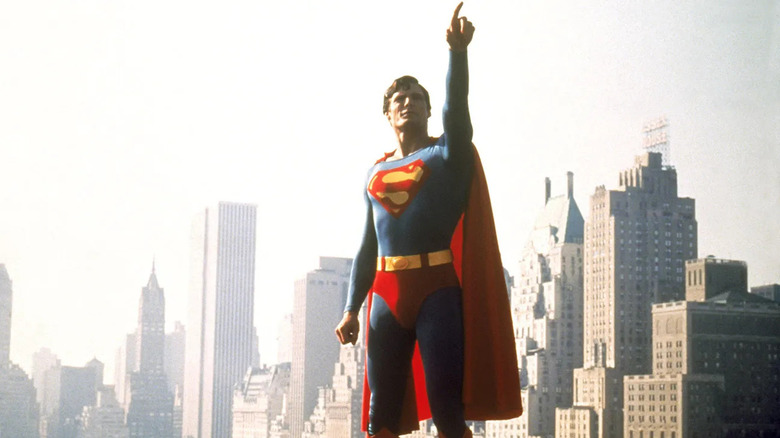Super/Man: The Christopher Reeve Story Review: One Of The Most Powerful, Emotional, And Inspiring Documentaries Ever [Sundance]
For the release of Richard Donner's "Superman: The Movie" in 1978, an ingenious ad campaign was launched that centered around promising audiences something no movie could hope to deliver. "You'll Believe A Man Can Fly," read the tagline on the one-sheets, supplemented by a beautifully evocative painting of clouds and the "S" shield logo. As audacious as this campaign was, it nonetheless was part of the ethos surrounding the film and the depiction of the titular character. While it's true that certain visual effects techniques were developed to make the flying sequences in "Superman" try and live up to such a promise, Donner knew that the element he really had to focus on was casting the part. If audiences believed in the man, they'd believe he was flying.
As fate would have it, Donner found the perfect Superman (not to mention Clark Kent) in Christopher Reeve, a then-unknown Juilliard graduate who was urged not to take the gig by no less than his off-Broadway castmate, William Hurt. Reeve not only took the part, he made it his own, becoming a star in the process of encapsulating an idealized fictional character. When Reeve suffered his near-fatal accident in 1995, falling off a horse and finding himself paralyzed from the neck down, the contrast between the virile movie star and the disabled accident victim was as shocking to the world as it was to the man suffering from it. To his immense credit, Reeve did not shy away from either spotlight: he used his public image and the clout that came with it to shine a light on all manner of disability issues, from accessibility to research funding. He even refused to let his movie career fall by the wayside, acting in several more films and directing others.
While Ian Bonhôte and Peter Ettedgui's documentary "Super/Man: The Christopher Reeve Story" recounts Reeve's journey with appropriate tenderness, it isn't a hagiography. It consistently reminds audiences that this was a real human being, and not actually a savior from another star. That said, the doc isn't interested in dispelling the mythical status that Reeve's persona inadvertently became so much as it attempts to reconcile the two: how could any average person live up to a character like Superman? How could they (and their family) suffer so much and still keep going? "Super/Man" delves into those questions and more, finding truths that are powerful, emotional, and inspiring, making the doc relevant in bigger ways than just the story of an actor.
Reeve attempts to carry the weight of the world, the film attempts to carry the weight of Reeve
Rather than adopt a simple birth-life-death narrative structure, Bonhôte and Ettedgui (who also made the doc "Rising Phoenix," about the Paralympic Games) give "Super/Man" a unique framework, inspired in part by Reeve's own 1998 autobiography "Still Me." Beginning with the actor's life-changing accident, "Super/Man" bounces back and forth between a young Reeve making headway in Hollywood and a middle-aged man literally learning how to breathe again.
This approach is novel for several reasons: for one, it allows Reeve to lend his own vocal narration to the film through audiobook recordings for "Still Me," something he otherwise wouldn't be able to do (the movie's closest comparison, last year's "Still: A Michael J. Fox Movie," had the benefit of new one-on-one interviews with Fox, something that isn't the case here). For another, it seeks to both highlight and dispel the contrast between the two so-called halves of Reeve's life — while the dichotomy is undeniably there, "Super/Man" understands that this isn't two different people, but the same person in two very different situations. In this way, Bonhôte and Ettedgui take some of the stigma off the portrayal of disability, reconfiguring Reeve's life so that it's all one story instead of a mere "before" and "after."
There's also the matter of the Reeve family; despite the film's title, "Super/Man" is not just Reeve's story. The filmmakers make sure to give ample time to both of Reeve's partners: Gae Exton, the modeling agent he never married but had two children with (Matthew and Alexandra), as well as Dana Reeve, the woman he did marry and the one he spent the rest of his life with (along with their son, Will, and Reeve's prior children). While Gae, Matthew, Alexandra, and Will all appear in new interviews, Dana, of course, cannot, having passed away from cancer just 18 months after Christopher succumbed to an infection in 2004. Fortunately, the surviving members of the Reeve family have allowed access to home movies and other materials from Christopher and Dana, allowing enough of their presence to be felt throughout the film that it doesn't feel too skewed by others' perspectives.
Waiting for a Superman
By far, the aspect that takes "Super/Man" beyond the confines of an average doc and into the stratosphere of a profoundly moving experience is the way Bonhôte and Ettedgui introduce elements of the extraordinary into the ordinary via Reeve's Superman persona. The primary stylistic device they use is an image of a Greek-style statue of Reeve that changes in response to different topics being discussed in the film at that moment. For example, when Reeve's star is ascending as Superman, the statue looks resplendent and god-like. When Reeve's body has been broken and is betraying him, tufts of green Kryptonite spring up around his affected areas. Sure, this is a mythologizing of Reeve's struggle, but it works as a good visualization of what he was going through, and for those of us suffering from our own health struggles, it helps to make us feel like heroes ourselves.
As I said, "Super/Man" is not a hagiography; while Reeve is undoubtedly portrayed in an overall good light, time is given to both his own shortcomings as a man as well as the controversies he stirred up during his philanthropic work, stirrings that led to the Christopher and Dana Reeve Foundation's current bifurcated approach to disability research (something they've labeled Today's Care and Tomorrow's Cure). The doc itself, of course, has its own shortcomings; while it does a great job chronicling Reeve's rise and fall through Hollywood's A-list, it barely scratches the surface of the other movies he made besides the "Superman" quadrilogy.
Still, this is a documentary that isn't strictly about Reeve the actor, but the man and his family. It's also about some of his famous friends, chief among them Robin Williams, whose own struggles are touched upon during the film. At one moment, Glenn Close opines that some of Williams' emotional issues were directly related to Christopher and Dana's hardships: "I always felt that if Chris were still around, Robin would still be alive." In lesser hands, such a sentiment would potentially feel inadmissible, if not irresponsible. In "Super/Man," it's utterly heartbreaking yet totally relevant: if such a strong, generally decent man like Reeve was made to suffer like this, what hope do the rest of us have? The ultimate strength of "Super/Man" is that it, like Christopher and Dana, does not give way to despair. Goals are motivating, success is lovely but ephemeral, life is short one way or another. What's paramount is belief: you may end up flying, you may not, but we all have the potential to. All we need to do is believe in it, like Reeve did.
/Film Rating: 10 out of 10


